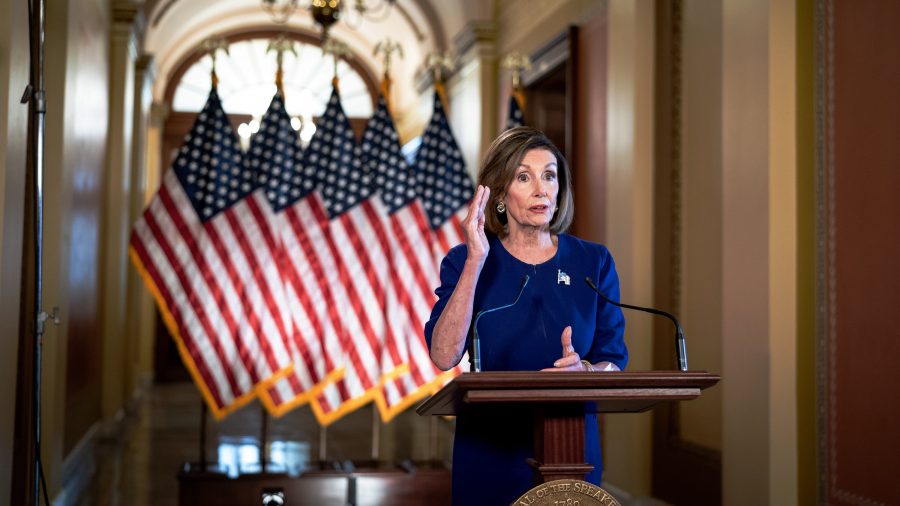On July 25, President Donald Trump spoke on the phone with President Volodymyr Zelensky of Ukraine. According to a transcript of the conversation from the New York Times, Zelensky asked about the $400 million in military aid the United States had promised Ukraine and wanted to know why Trump had delayed the payment without any explanation. Rather than giving Zelensky a reason, Trump pressured the president into investigating Vice President Joseph R. Biden Jr. and his son for corruption. It seems as though Trump is using his presidential power to coerce Ukrainians into investigating one of his potential political rivals for the 2020 election.
Nancy Pelosi announced that the House of Representatives is using the conversation as evidence of Trump’s “betrayal of his oath of office, betrayal of our national security, and betrayal of the integrity of our elections” and that they are “moving forward with an official impeachment inquiry.”
Students on the Loyola campus join the rest of the country in debates about whether or not Trump should be impeached. I talked with some of my classmates about their thoughts on the controversy, and many students support the idea that Trump should be impeached, but they do not believe it will happen. Even if the House of Representatives is successful in its proceedings, the Republican Senate is likely to keep him in office.
Furthermore, some students are worried the impeachment process may lead to a waste of taxpayer dollars and could hurt the stock market. It is difficult to predict the effects the impeachment process would have on the economy, granted only three U.S. presidents have ever faced the possibility. While researchers have attempted a complete study of the consequences, there are often outside factors that overshadow the effects and make them unidentifiable. For example, when Nixon was confronted with impeachment, the stock market was already crashing due to an economic recession. On the contrary, there have been beneficial effects on the stock market during impeachment proceedings. For example, during Clinton’s proceedings, S&P rose 39%.
In the upcoming weeks, we will see the possible effects on policy and the resulting opinions of our student body.
Photo courtesy of New York Times.














































































































Anonymous • Oct 27, 2019 at 10:55 pm
5